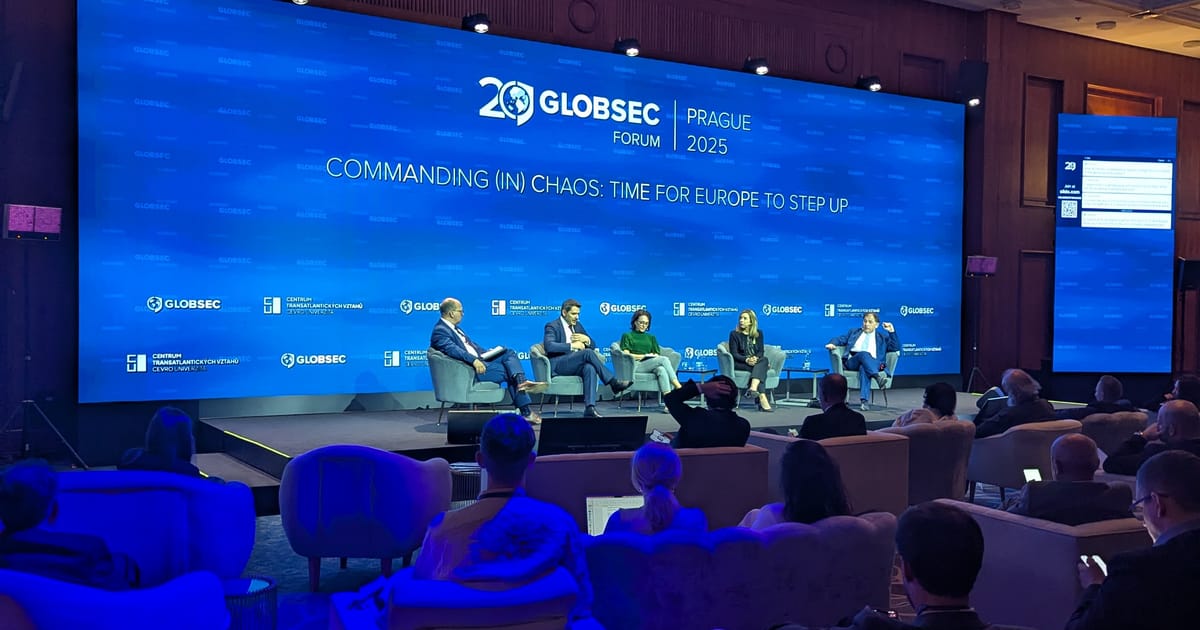First, I really want to get your sense of Havel’s legacy. You wrote a seminal biography on him, what would Havel say about the political trajectory of the Czech Republic now and its place on the geopolitical stage under Pavel and Fiala?
“Look, I’m very reluctant to answer this type of question because I always feel like a spiritistic medium being asked to speak to the great man from beyond. But in general terms, of course, Havel would be very supportive of the foreign policy of the Czech Republic. In particular, he would be very supportive of the support we provide for Ukraine in the spirit of shared responsibility for freedom around the world. He would probably be somewhat less pleased with some of the things in our domestic politics, but that’s always very messy and complicated. On the whole, looking back at the last 35 years, I think he would be modestly pleased with his work and the work of others.”
Especially because I think the Czech Republic has been leading on a number of these geopolitical issues. It’s often said that central Europe is leading on Ukraine, for example, one of the first supporters militarily advocating for more manpower. And Havel was someone who was more pro-Iraq invasion, in favor of a hawkish on the Middle East. Do you think that would also be relevant in the case of Ukraine?
“Yes, absolutely. One of his longstanding beliefs was the need to resist evil; the need not to appease those who come with force and violence and who blackmail peace-loving countries and people into submission. This feeling is probably rooted in his memories of the Munich Treaty and the Munich appeasement, which directly led to a war that cost 50 million lives. The lesson that if we do not stand up to evil early at a tolerable cost, we will have to pay an intolerable cost later on was what guided him in his thinking about conflicts. That’s why, although he was a very peaceful man, he was supportive of the war in Iraq and the military intervention in Kosovo and former Yugoslavia.”
And I’m curious, how much has your thinking evolved with Havel? And vice versa? How much has his thinking evolved with you, as someone who knew him well and that comes across in your biography?
“Obviously, Havel influenced me a lot. He was one of the most important people in my life. I learned an enormous amount from him. I was inspired by his ideas, bravery, and personal warmth and qualities. He was a great person. As for anything from me, perhaps I played a role that was not public, acting as the devil’s advocate in some of our discussions. I am, by nature, more skeptical and maybe more pessimistic, while he was the idealist of the two of us. So on some occasions, I helped bring him back down to earth a little. But it’s not for me to say.”
Speaking of learning from each other, you also mentioned in the panel you were moderating that NATO needs to learn from Ukraine much more than Ukraine has to learn from NATO, that was your phrasing. Can you elaborate on that? What should NATO learn from Ukraine?
“It’s obvious, but not a reason for joy. Ukraine is the fighting nation. It has learned to fight under existential threat in terrible conditions, initially with insufficient weapons. It had to rely on its own resources and wits. Considering what has happened since, it has done remarkably well. NATO has not fought a major war in its entire existence, if we don’t count peacekeeping operations in former Yugoslavia. We have the standards, the organization, and the structure, but we don’t have the experience. Sometimes we ask ourselves whether we have the stamina to do what Ukrainians have been able to do. That’s what I meant by NATO learning from the Ukrainians.”
Last question here: Havel was an avid leader, and people still look up to him. What do you think, is there a leadership vacuum in the Czech Republic? Are people following in Havel’s lineage?
“Look, that’s a question we sometimes think about, but it’s not very productive to think about it. There is a dearth of leaders, not only in the Czech Republic but generally. Although we have some very credible people at the top of our state and government, but the big historical leaders are rare these days. There’s one theory, and I think there’s something to it, that crises generate leaders rather than leaders controlling crises. So if the next big leader is around the corner, it probably means a big crisis is coming. I’m afraid that might be the case.”
